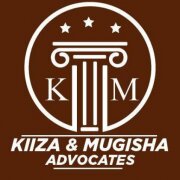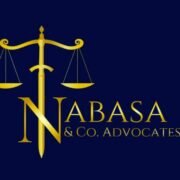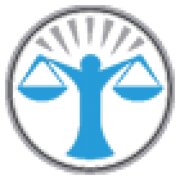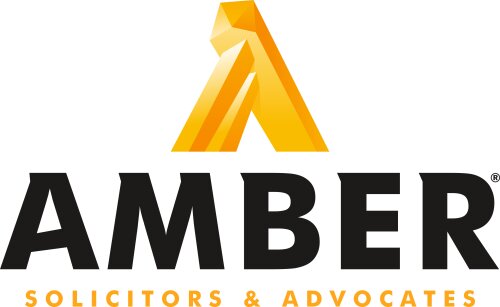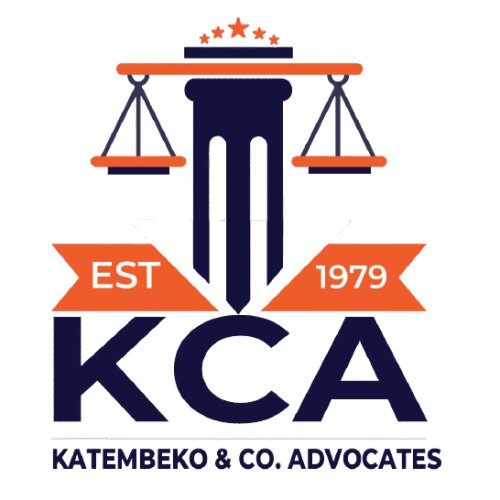Best Media, Technology and Telecoms Lawyers in Kampala
Share your needs with us, get contacted by law firms.
Free. Takes 2 min.
List of the best lawyers in Kampala, Uganda
About Media, Technology and Telecoms Law in Kampala, Uganda:
In the rapidly evolving city of Kampala, the disciplines of media, technology and telecoms are becoming increasingly significant. Media law primarily covers legal regulations involving the press, advertising, and broadcasting. Technology law encompasses the rules for digital interactions and the Internet, while telecoms law is concerned with the regulations governing telephone and Internet service providers. These industries play a substantial role in businesses, governments and everyday life in Kampala, and they are subject to quite a number of local and international legal regulations.
Why You May Need a Lawyer:
In the media, technology, or telecom fields, you may require a lawyer for a variety of reasons such as understanding regulatory policies, settling commercial disputes, or handling issues related to defamation, unfair competition, or intellectual property rights. Legal guidance is also essential for telecommunications companies seeking to comply with licensing requirements and policies set by the Uganda Communications Commission. Lawyers are also necessary for dealing with data privacy and protection, an evolving area in technology law in Uganda.
Local Laws Overview:
Local laws in Kampala reflect a unique blend of local and international influences. The Uganda Communications Act of 2013 regulates telecommunication services to ensure the standards of quality as well as fair and non-discriminatory practices. The Computer Misuse Act of 2011 protects against cybercrimes such as hacking, phishing or the dissemination of harmful propaganda. The Data Protection and Privacy Act of 2019 has also been established to regulate the processing of personal data. In the media sector, the Press and Journalist Act sets standards for journalism and guarantees freedom of speech.
Frequently Asked Questions:
Q1: Who regulates the media/telecom sectors in Uganda?
The Uganda Communications Commission (UCC) is the primary regulatory authority governing both media and telecommunication sectors in Uganda.
Q2: Is data privacy protected in Uganda?
Yes, the Data Protection and Privacy Act 2019 governs the collection, processing, storing, and use of personal data. It aims to protect the privacy of the individual and personal data by establishing the rights and obligations of individuals and entities processing personal data.
Q3: Is there ISP liability for content in Uganda?
Under the current laws, Internet service providers are generally not held liable for online content. However, they are expected to comply with directives from UCC regarding content management.
Q4: What legal recourse is available for defamation in the media?
If defamed by a media outlet, individuals may file a civil lawsuit seeking damages. The offending entity might also face penalties under the Press and Journalist Act of Uganda.
Q5: What are the requirements for telecom licensing?
For telecom licensing, companies have to comply with the regulations stipulated by the Uganda Communications Commission. Compliance with stipulated terms and conditions, as well as meeting the applicable technical and financial criteria, is essential.
Additional Resources:
For additional resources, the Ministry of Information, Communications Technology and National Guidance, and the Uganda Communications Commission (UCC) websites share crucial information. The National Information Technology Authority (NITA) also offers valuable resources in the area of technology.
Next Steps:
If you need legal assistance in the field of media, technology, or telecoms in Kampala, Uganda, consider first identifying your specific need. You may wish to consult with a lawyer who specializes in these areas. It would be useful to collate any relevant materials such as contracts, allegations accusations, and/or regulatory correspondence prior to a consultation.
Lawzana helps you find the best lawyers and law firms in Kampala through a curated and pre-screened list of qualified legal professionals. Our platform offers rankings and detailed profiles of attorneys and law firms, allowing you to compare based on practice areas, including Media, Technology and Telecoms, experience, and client feedback.
Each profile includes a description of the firm's areas of practice, client reviews, team members and partners, year of establishment, spoken languages, office locations, contact information, social media presence, and any published articles or resources. Most firms on our platform speak English and are experienced in both local and international legal matters.
Get a quote from top-rated law firms in Kampala, Uganda — quickly, securely, and without unnecessary hassle.
Disclaimer:
The information provided on this page is for general informational purposes only and does not constitute legal advice. While we strive to ensure the accuracy and relevance of the content, legal information may change over time, and interpretations of the law can vary. You should always consult with a qualified legal professional for advice specific to your situation.
We disclaim all liability for actions taken or not taken based on the content of this page. If you believe any information is incorrect or outdated, please contact us, and we will review and update it where appropriate.
Browse media, technology and telecoms law firms by service in Kampala, Uganda
Kampala, Uganda Attorneys in related practice areas.



